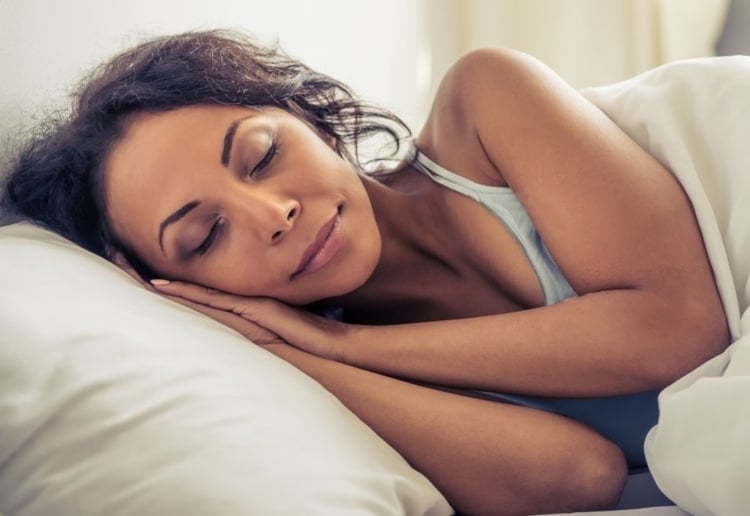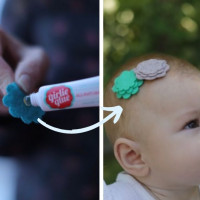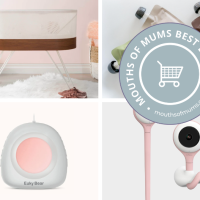2021 has had its fair share of uncertainty and ongoing disruption to our lives as we knew it, including changes to the usual flow of our lives, with thousands of people still working from home, disrupting our ‘normal’ routines.
For Aussie mums, the juggle of family, work and home life has never been more complicated, and stressful, and this continues to have an impact on their capacity to get a good night’s sleep, affecting day-to-day lives, often with detrimental outcomes.
So, what tactics should we focus on in order to improve our sleep hygiene?
Firstly, it is important to understand that sleep is an active process of autophagy, which is the body’s way of cleaning out damaged cells in order to regenerate newer healthier cells. During sleep, the cells of our brains are literally cleaned out of waste products, rejuvenating, restoring, and regenerating – to work more efficiently, providing us with that fresh feeling and energy to tackle a new day. Disrupted or insufficient sleep will result in a build-up of toxins, irritability and changes to our bodies and our behaviour, which we should avoid at all costs.
Here are 4 sleep hygiene practices which will support a better night’s sleep:
1. Optimal sleep rituals for resilience
Sleep is your built-in, non-negotiable life support system, and it is free. If you don’t use it, you are missing out. With a consistently good night’s sleep, you build the physical, mental, and emotional resilience to fulfil your potential and be the best you can be. A consistently good night’s sleep is a function of both quantity (7-9 hours per night) and quality sleep, which means breathing whilst asleep. Prioritise sleep and establish a sleep routine – the key to teaching a good sleeping habit is about formulating a sleep routine. From 4 weeks, to 4-year olds, to 60- to 90-year olds – a sleep routine is essential. The routine of the sun going up and down drives our world and has done since the beginning of time. We should respond to that – it’s the natural rhythm, called the circadian rhythm, which when out of sync is disruptive.
2. Banish technology from the bedroom
Banish technology from the bedroom at least one hour before going to sleep – digital screens from phones, televisions and laptops emit blue light which is very disruptive to our circadian rhythm, which is that all-important body clock in our brain that responds to light changes in our environment and regulates our sleep and awake cycles.
3. Daily Rituals
Have meals at regular, consistent times each day, together with your children, whenever possible. They need your presence as much as you need the routine. This routine helps to regulate your body’s natural clock, allowing it to shift energy production in the day to restorative function at night.
Make sure you spend some time outdoors, even if for 15 minutes at a time, if possible around sunrise or sunset, so that your body has the exposure to natural light at the start and end of the day. This will help send the appropriate signal to your brain to help set your circadian rhythm. It is also good for bub to get natural light packed with vitamin D on the skin.
Spend quality time with your little ones, where you are absolutely present in both body and mind, to make sure that you have a fulfilling experience by the end of each day. You can take to your rest with a good state of mind, knowing you have given your parenting role your best.
4. Manage weight gain to reduce sleep apnoea
COVID-19 has seen many of us pack on those ‘COVID Kilos’ which in stressful circumstances is quite understandable. What we do not take into account is that this may affect our ability to get a good night’s sleep. Weight gain has been associated with sleep conditions such as excessive snoring, sleep disruption and obstructive sleep apnoea (OSA), a sleep condition where your breathing can actually stop while you are asleep.
1 in 4 Australian adults are at risk of developing sleep apnoea with the condition affecting approximately 10% of females and 25% of males.
Obstructive sleep apnoea has been associated with chronic health conditions including Type2Diabetes, Depression, Obesity and even Heart conditions and Stroke. Symptoms can include snoring, constant irritability or falling asleep during the day. An at-home sleep test can determine if you have obstructive sleep apnoea, or you can visit your local Blooms The Chemist pharmacy and speak to a sleep expert.
Take The Sleep Study Quiz
If you think you may be suffering from Sleep Apnoea, take the Sleep Study Quiz and then visit your local Blooms The Chemist to discuss your situation and what steps you could be taking to get a good night’s sleep.
Do you sleep well or not so well. What do you do to help get a good night’s sleep? Tell us in the comments below.
We may get commissions for purchases made using links in this post. Learn more.




















12:24 pm
10:27 am
8:38 pm
2:10 pm
3:30 pm
11:39 pm
4:31 pm
8:43 am
11:29 am
10:38 am
12:05 pm
9:26 am
8:51 am
-

-
-
-
mom93821 replied
- 26 Mar 2021 , 7:29 am
Reply7:02 am
5:47 am
- 1
- 2
- »
Post a comment